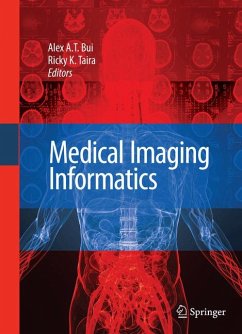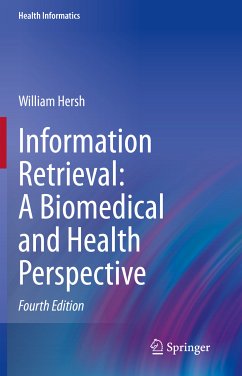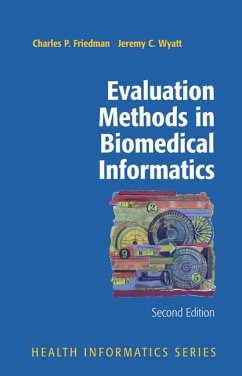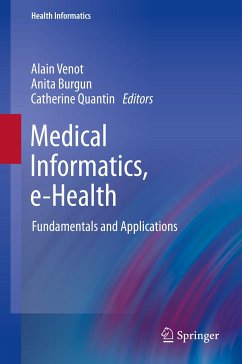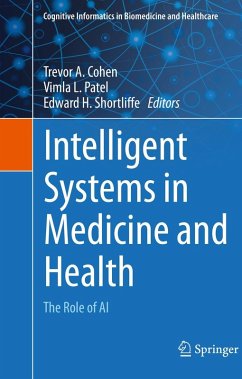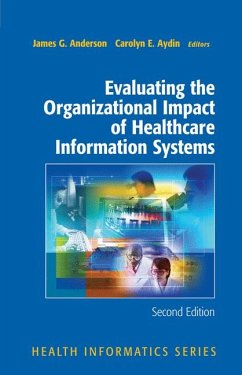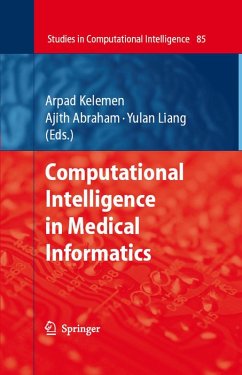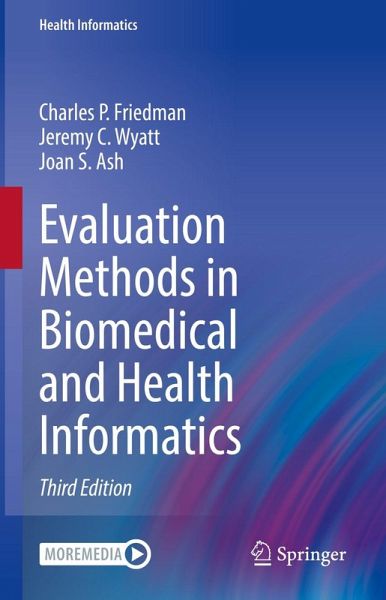
Evaluation Methods in Biomedical and Health Informatics (eBook, PDF)
Versandkostenfrei!
Sofort per Download lieferbar
48,95 €
inkl. MwSt.
Weitere Ausgaben:

PAYBACK Punkte
24 °P sammeln!
A broad update of the very successful first edition, Evaluation Methods in Medical Informatics is a comprehensive how-to guide full of evaluation techniques for a range of informatics professionals. This guide to successful health information system evaluation is an invaluable resource for all levels of informatics professionals, from student to on-site system administrator.
Dieser Download kann aus rechtlichen Gründen nur mit Rechnungsadresse in A, B, BG, CY, CZ, D, DK, EW, E, FIN, F, GR, HR, H, IRL, I, LT, L, LR, M, NL, PL, P, R, S, SLO, SK ausgeliefert werden.



